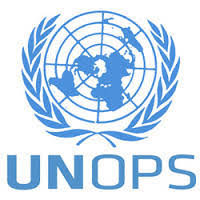Every year millions of people die prematurely from non-communicable diseases (NCDs) – including diabetes, heart disease, respiratory disease and cancers. The Defeat-NCD Partnership, launched today at the United Nations General Assembly, is a concerted effort to reverse the epidemic.
“Imagine if an epidemic threatened to kill 41 million people every year. It’s already happening. This year. Last year. Next year, too. Non-communicable diseases are the world’s biggest killers,” said Dr Tedros Adhanom Ghebreyesus, Director-General of the World Health Organization.

In an effort to tackle the rising toll of death, disease and disability from NCDs in developing countries, the Defeat-NCD Partnership will bring together governments, the private sector and civil society, to drive action in some 90 low- and lower-middle income countries.
“Our vision is of a world where there is universal coverage for all people with NCDs,” said Dr Mukesh Kapila, Chief Executive of The Defeat-NCD Partnership.
“We must succeed here or else we will not achieve the Sustainable Development Goals that the world has committed to reach by 2030,” he added.
The world has enough knowledge, capacity and even resources available to reverse the tide of NCDs, but collaboration will be crucial.
“This will work only if we are determined to come together to tackle the many obstacles to preventing and treating NCDs effectively,” said Dr Sania Nishtar, the Co-chair of the WHO Independent High-Level Panel on NCDs. “The Defeat-NCD Partnership provides us with a well-considered mechanism for mobilising the sustained, whole-of-society effort that is necessary,” she added.
Francesco Rocca, President of the International Federation of Red Cross and Red Crescent Societies, added: “NCDs pose huge personal and social impacts that burden poorer people the most. Community engagement and voluntary efforts are essential to scale-up prevention, treatment and care. We welcome the partnerships that Defeat-NCD is setting up with several National Red Cross and Red Crescent Societies.”
“Business as usual will not be enough,” said Dr Arnaud Bernaert, member of the Executive Committee of the World Economic Forum.
“That is why we are working with The Defeat-NCD Partnership, to create the innovative approaches necessary to confront a challenge of this magnitude,” he added.
Hosted by UNOPS, The Defeat-NCD Partnership includes governments, multilateral agencies, civil society, academia, philanthropic foundations and the private sector, and will focus on four areas:
- Helping governments to strengthen key national institutions and develop practical plans of action
- Boosting NCD service provision through community action and the strengthening of health systems
- Expanding affordable provision of essential NCD medicines, diagnostics and technologies through an innovative marketplace
- Mobilising additional financial assistance and investment to sustain the longterm services required for these chronic, often life-long, conditions
The Defeat-NCD Partnership was officially launched today at a side event of the 73rd UN General Assembly in New York, sponsored and hosted by the Government of Denmark, the Government of Tanzania and UNOPS. Several partners announced their support for the Partnership, including the Danish Government and the European Commission. Private sector contributors included Novo Nordisk and Roche.
“We are delighted to welcome The Defeat-NCD Partnership as the newest member of our family of global health and development partnerships,” said Grete Faremo, Executive Director of UNOPS.
“Much work lies ahead. But I am optimistic that with the energetic support of all our stakeholders and in the spirit of true partnership, we will make strong headway together in the fight against non-communicable diseases,” she said.
About The Defeat-NCD Partnership
For more information, visit: www.defeat-ncd.org
About UNOPS
As part of the United Nations system, UNOPS mission is to help people build better lives and countries achieve peace and sustainable development. We help other United Nations organizations, governments and partners to manage projects, and deliver sustainable infrastructure and procurement in an efficient way.
For more information, visit: www.unops.org
